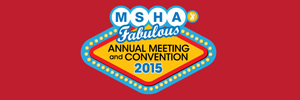PEERS Treatment for Adolescents With Social Skills Deficits
Friday, 10:15am to 12:15pm
Rooms 70/71/72/73
Session 9
The present study examines clinical outcomes following the delivery of an existing evidence-based social skills training intervention (Program for the Education and Enrichment of Relations Skills; The UCLA PEERS Program) in a sample of high functioning adolescents with a range of neurodevelopmental weaknesses or disorders, to include Autism Spectrum Disorders. The clinical sample was drawn from a Midwestern hospital outpatient developmental pediatrics clinic. Fifty-two adolescents between the ages 11 to 18 years (mean age = 14.33 years) who were referred for social skills treatment participated. Adolescents with their parents completed at least 11 of 14 weekly PEERS treatments over 90 minutes one time per week with homework. Change scores were compared between pre-treatment and post-treatment. Relative to pre-treatment, adolescents showed a significant increase in social skills knowledge and an overall decrease in autism-related symptoms at post-treatment. Relative to pre-treatment, adolescents demonstrated increased frequency of peer interactions by hosting at least one get-together with same-aged peers, however, no significant change was found in frequency of invited get-togethers at post-treatment. These results extend the work reported by Laugeson, Frankel, Gantman, Dillon, & Mogil, 2012 and show that parent-assisted PEERS may be useful for a wider group of high functioning adolescents who are clinically referred for social skills concerns. More information is needed into the durability of PEERS treatment as delivered in a clinical setting with diverse participants.
Track:
Pediatric
